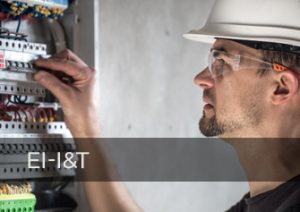Home » Courses » Engineering Skills Development Courses » Building Design Review


Building Design Review
Qatar: +974 3340 3359 / 6646 4941
Chennai: +91 99520 92334
Mumbai: +91 99520 92334
Kuwait: +965 6077 4066
- Course Overview
- Who Should Attend?
- Course and Exam Fee
- Course Schedule
What is Design Review?
Building Design Review briefly as ‘Able to conduct a review of technical engineering design and the ability to provide comments and / or recommendations during the project different design stages”.
Building Design resolves client requirements into a set of instructions for the construction of a building that satisfies those requirements. It tends to follow a relatively consistent process of project definition followed by the iterative development of an increasingly detailed solution.
It is important that regular reviews are carried out during the different design process to ensure that the developing design properly reflects the client’s requirements and that the design and budget do not diverge.
Design Reviews are typically coordinated by the lead designer. They may involve the consultant team, the client, independent client advisers and where there is one, the contractor. They may also involve external organizations who specialize in undertaking design reviews.
The course in building design review techniques should encompass the development of a number of sub skills and competencies. These are translated here into course objectives.
Objectives
- Able to understand and promote Design quality principles.
- Able to apply relevant Value management techniques and methods.
- Able to understand and use diverse Design Review methods
- Peer review
- Constructability review
- Third-party specialized review
- Risk Management
Delegates working in leadership roles who desire to enhance their leadership competencies and maximize effectiveness in current positions. This is an experiential-based dynamic process whereby delegates not only to know, but also learn to reflect on and to apply knowledge.This course is recommended for anyone involved with the Design and construction of Projects.
- Clients Representatives
- Supervisors
- Engineering Project Managers,
- Site Officers and Managers,
- Construction Engineers,
- Project Engineers and Operation Engineers.
COURSE FEES – Contact our respective Branch Consultants
Including:
- 15 Hours of Training to enhance the practical Knowledge and skills in Design Review Process
- Complete Set of Study Materials Soft Copy
Value Added Benefits
- Learning from Industry Experts in the field of Design and Construction Engineering Practice
- Flexible Timings / Evening Sessions
- Engineering Skills Development Training Program (ESKD)
- Leading & Professional Training Provider for QCDD Exam, MMUP UPDA Exam, PMP & other management certification programs over past 10 years in Qatar, Kuwait & India
Contact our respective Branch Consultants
Qutar : +974 6646 4941
Chennai : +91 84289 50588
Chennai : +91 84289 50588
Email : info@greenintl.net
training@greenintl.net
training@greenintl.net
Contact our respective Branch Consultants
Qatar: +974 3340 3359 | 6646 4941
Chennai: +91 99520 92334
Mumbai: +91 98 19 379702
Kuwait: +965 6077 4066
Course Outline
Register with Confidence to Achieve Success on 1st Attempt
- INTRODUCTION
- SESSION 1
- SESSION 2
- SESSION 3
- SESSION 4
- SESSION 5
This course designed as engineering skills development training program which will help the construction industry personnel to enhance their practical knowledge and skills on the Electrical Installation, inspection and Testing.
SESSION 1
- Design quality principles
- Value management techniques and methods
- Design Review methods
- Peer review
- Constructability review
- Third-party specialized review
SESSION 2
- Design risk management processes and procedures.
- Other Risks (other than health and safety risks) associated with the design, such as:
- Use of innovative components,
- Long lead time items
- Non-standard elements of the design.
- Reviews of different design disciplines.
SESSION 3
- Compliance with the project brief
- How to manage any changes if required.
- Compliance with procedures laid out in the project
- Execution plan and manage amendments / changes.
- Compliance with guides, codes and regulations
SESSION 4
- Feasibility estimation, buildability, cost and programming of the design.
- Specialist designers or specialist contractors.
- The need for mock-ups, samples, tests and inspections.
- Sustainability and compliance with:
- existing client policies or targets,
- site selection, availability of transport,
- availability of local resources and services,
- the local infrastructure, local ecology, landscape,
- energy use and energy source,
- Flexibility and durability,
- waste and water management,
- Material selection, recycling, pollution, resilience to climate change, dismantling and demolition or re-use.
SESSION 5
- Protocols Assessment for submitting design information,
- Building information modelling (BIM) protocols.
- Compliance comments received and instruct the consultant / design team to amend or develop the design as necessary.
- Case Study.



